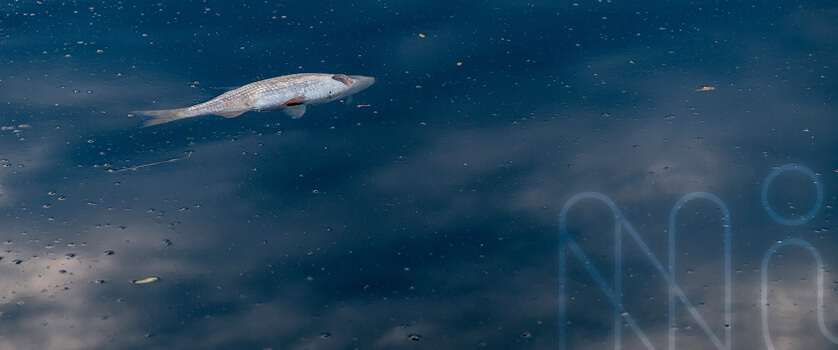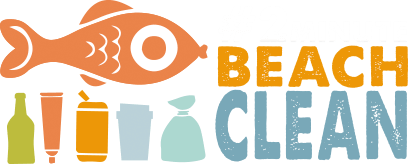Plastic and us: a love affair that turned toxic.
Author Martin Dorey on 15.01.2020
From the founder of the global #2minutebeachclean movement, writer and beach lover Martin Dorey.
Plastic is a wonder material. It can be used to make all kinds of things, from car parts and toys to defibrillators and medical equipment. It saves lives, makes us comfortable and gives us the power to make anything we dream of.
We are in love with plastic. But you only have to watch programmes like Blue Planet 2 to know that our relationship with it has become toxic. We have overindulged our love for it, and now it’s everywhere. It’s in our oceans, our food, our land and our lives and living without it is becoming more and more difficult.

So why, I ask myself, is it such an issue?
As an environmentalist who cleans beaches I’ve seen the devastation that plastic is having on our oceans. But of course it’s more than just dirty strandlines. My emotional stance on the subject isn’t enough. In order to give us the resolve to find and use alternatives – like bamboo – we need to know why things are going bad in our relationship with plastic, the wonder stuff. So I have compiled a list of the reasons we should all be cutting out plastic from our lives and switching – as soon as possible – to natural alternatives.
- Plastic is made from oil, which is running out.
- Plastic doesn’t bio degrade, and if it does break down it only breaks down into smaller and smaller pieces.
- Plastic absorbs natural toxins known as persistent organic pollutants when in seawater. These pollutants accumulate and can be passed up the food chain if ingested by plankton, microorganisms and fish.
- Some plastics leach harmful chemicals such as BPA, BPS and phthalates into food, drinks and the environment. Bisphenol-A (BPA), for example, acts as a synthetic oestrogen and can be disruptive to the body when it leeches out of plastic. It has been linked to breast and prostate cancer.
- Lots of plastics can be recycled. However, not all of them can. As they don’t break down, these plastics will be persistent, either in landfill or in the environment where they will attracts toxins and leach harmful chemicals.
- Plastics that aren’t recycled will either end up in landfill or in the environment. Space for landfill is running out in the UK, and is becoming more and more expensive.
- Plastics can be recycled, but not indefinitely like aluminium, which means drinks companies are reticent about using them for their bottles, instead preferring virgin plastic. Recyled plastics are less ‘pure’ than virgin.
- Disposal of plastics and other waste through recycling or landfill is paid for, generally (90%), by local councils, and that means us. Manufacturers pay as little as 10% for the disposal of their products. So we pay to clear it up!
- Seabirds, cetaceans, sea mammals and fish die in their millions every year as a result of plastics in the ocean, either through ingestion or entanglement.
- 90% of seabirds have plastic in their stomachs (National Geographic).
- Animals that ingest plastics die of starvation because, while they feel full, they get nothing from it.
- Every time an item of synthetic clothing is washed it releases thousands of micro fibres into the ocean – because washing machines do not have filters small enough to catch them.
- The UK uses around 2.5 billion coffee cups a year. They contain plastic liners and are very hard to recycle. It is estimated that only 1 in 400 are recycled (telegraph.co.uk).
- The UK uses around 35 million plastic bottles a year. Around 44% of them are not recycled, which means that around 16 million are not recycled (Recyclenow.com).
- There are now believed to be 46,000 pieces of plastic for every square mile of ocean.
- Flushed wet wipes readily combine with fats, oils and greases to form blockages and fatbergs in our sewerage systems. This can result in household flooding and raw sewage being discharged into our rivers and seas. They also end up in the ocean where they do not break down, only contributing to the issue of microplastics at sea (Marine Conservation Society).
- Disposable, plastic nappies make up about 30% of non-biodegradable waste in landfill.
- The average baby will use around 6000 disposable plastic nappies by 30 months.
Does that help? If it worries you, I am sorry, but the sooner we wake up to the trouble our love affair with plastic is causing, the sooner we can live in a cleaner world. Plastic might be great at a lot of things, but the way we are using it is so very destructive, both to us and the world around us.
Looking for answers? Click here.
Author Martin Dorey – the founder of the global #2minutebeachclean movement, writer and beach lover.


What Others are saying
Be the first to comment